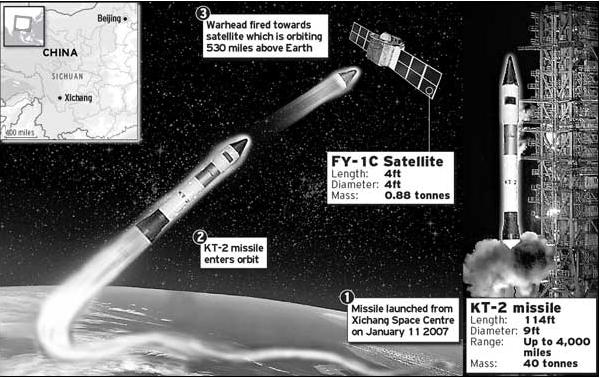Merkel 'heads for' new coalition
(BBC)-Sunday, 27 September 2009 21:08 UK
Chancellor Angela Merkel has been returned to power in Germany, exit polls suggest, after her conservative bloc won more than 33% of the vote.
Mrs Merkel told supporters they had achieved "something magnificent", but said she wanted to be a chancellor of all Germans at a moment of crisis.
Mrs Merkel's bloc now looks set to form a centre-right alliance with her preferred partner, the pro-reform FDP.
She says the alliance will get Germany out of its worst crisis in 60 years.
Her rival, SPD leader Frank-Walter Steinmeier, admitted a "bitter defeat".
He said his party would be "vigilant in opposition".
 | See a breakdown of what parties got, based on German TV exit poll 
|
"The voters have decided and the result is a bitter day for German Social Democracy ... there is no way of talking it up - the result is a bitter defeat," the SPD leader said.
Still, in the "Elefantenrunde" debate that traditionally follows the German election, involving each of the party leaders (the "elephants"), Mr Steinmeier said it "would not be very sensible" to resign and vowed "to go on fighting".
Exit polls in Germany, Europe's largest economy and the biggest member of the European Union, are generally considered to be extremely reliable.
 | AT THE SCENE Jonny Dymond
BBC News, Berlin As exit poll results neared, officials and activists filled Christian Democrat headquarters in central Berlin, to eat, drink, gossip and of course speculate about the results to come. Then, drinks were set down and eyes turned towards TV screens. Chancellor Merkel's own party has done well but that's not what caused the great cheer here. It's the fact that the right-wing FDP looks like it has done very well, exceeding expectations. The left-right coalition, the so-called "grand coalition" between the Social Democrats and the Christian Democrats can now be consigned to history. Angela Merkel will still be chancellor tomorrow but overnight the political landscape will have changed completely. |
Preliminary results are expected in the next few hours.
The BBC's Steve Rosenberg in Berlin says the result seems a disaster for the Social Democrats (SPD), who could have their lowest share of the vote since World War II.
The SPD have shared power with Mrs Merkel's CDU/CSU in an awkward grand coalition since the last elections in 2005.
An exit poll for ZDF television gave the CDU/CSU 33.5%, SPD 23.5% and the FDP, Mrs Merkel's preferred partners, 14.5%.
This would give the centre-right alliance, with 48% in total, a narrow majority over the SPD and the two other major parties, the Greens and the Left, both of which increased their share of the vote.
"Our main objective has been achieved, namely a change of government, which for me is what really counts this evening," a smiling Mrs Merkel told cheering supporters in Berlin.
"I want to be the chancellor of all Germans, so that things improve for our country, especially in such a moment of crisis."
"I would not tell anyone to remain sober, but we don't want to forget that there are many problems in our country to be solved," she added.
She said she would hold "swift and decisive" talks with FDP leader Guido Westerwelle, whom some are tipping as the next foreign minister.
Mr Westerwelle said the new government would act "responsibly".
"Now the work starts for real... for Germany and our people," he said
--------------------------------------------------------------------------
ISOTIMIA.GR, - Κυριακή, 27 Σεπτεμβρίου 2009 - 21:27
Κυβέρνηση χωρίς τους σοσιαλδημοκράτες μπορεί, όπως διαφαίνεται, να σχηματίσει πλέον η καγκελάριος Ανγκελα Μέρκελ καθώς επιτυγχάνεται, αν και δύσκολα, ο στόχος συνεργασίας με τους Φιλελεύθερους (FDP),. Οι μέχρι τώρα συμμετέχοντες στην κυβέρνηση Σοσιαλδημοκράτες (SPD) καταγράφουν τα χειρότερα ποσοστά τους μεταπολεμικά.Η είδηση ενισχύει ήδη το ευρώ καθώς εκτιμάται ότι η ενίσχυση της κεντροδεξιάς ενδέχεται να φέρει γρηγορότερη ανάκαμψη ενώ οι Φιλελεύθεροι θεωρούνται «φιλικότεροι» για τις επιχειρήσεις Οι χριστιανιοδημοκράτες της καγκελαρίου Ανγκελα Μέρκελ, όπως ήταν αναμενόμενο, αναδεικνύονται πρώτη δύναμη στα exit poll των γερμανικών ομοσπονδιακών εκλογών. Τα exit poll έδωσαν 33,5% στους Χριστιανοδημκράτες της Μέρκελ (CDU και CSU), 22,5-23,5% στους Σοσιαλδημοκράτες (SPD), 15-14,5% στους Φιλελεύθερους (FDP), 10,5-10% στους Πράσινους και 12,5-13% στην Αριστερά.Ο υποψήφιος του SPD και υπουργός Εξωτερικών με το Μεγάλο Συνασπισμό του 2005, Φρανκ Βάλτερ Στάινμαγερ, παραδέχτηκε την ήττα ελάχιστα λεπτά μετά το κλείσιμο της κάλπης.Στις προηγούμενες εκλογές, το SPD είχε συγκεντρώσει το 34,2%. Οι Φιλελεύθεροι (FDP), συγκεντρώνουν τα καλύτερα αποτελέσματα της ιστορίας τους, και ετοιμάζονται για την κυβέρνηση. Η συμμετοχή έφτασε στο χαμηλότερο ποσοστό της για τη Γερμανία, στο 72%.













